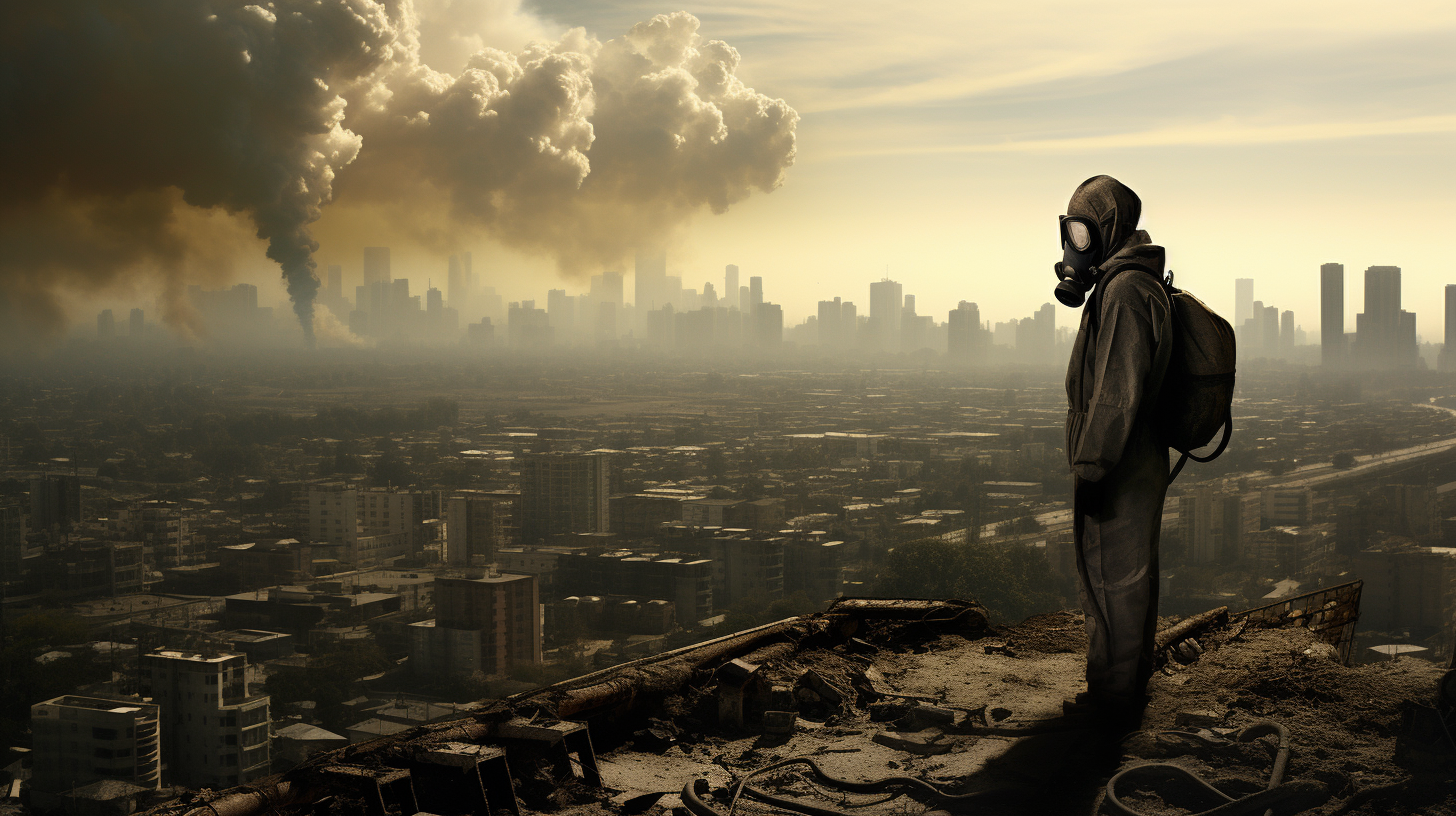In the waning days of 2023, the world we inhabit has become unrecognizable to the nostalgia-tinted view of the 20th century. Our cities stand enshrouded in a perpetual twilight, their skyscrapers mere shadows against a dense, suffocating blanket of smog. It’s in this dim new world that breathing, the most fundamental act of living, has mutated into a privilege for those fortunate or wealthy enough to afford it.
Just two days ago, we documented the harrowing struggles in ‘Breathing Dust: Humanity’s Choking Challenge,’ but today, the dangers of climate inaction loom even more ominously, as the once-clear line between indoor sanctuary and outdoor menace blurs dangerously.
Enter the elite Respiratory Clubs, born out of dire necessity and exclusivity. Behind their sealed doors, the wealthy inhale premium-filtered air, a luxury amidst the toxic miasma that has laid claim to our natural atmosphere. As their members relish each untainted breath, the underprivileged masses are left gasping, their lungs grappling with the unrelenting smog.
An interview with a Respiratory Club member—whose identity is concealed to protect their controversial indulgence—reveals the stark disparity: ‘Breathing clean air? It’s like a rare vintage wine; the rich taste it, while the rest can only imagine its flavor.’
But what led us to this hellish tableau? Unchecked industrial emissions, relentless deforestation, and a collective apathy for incremental climate change have forged the chains that now bind us. Even the very industries responsible for our plight face an ironic predicament, as their operations become hindered by the monstrous pollution they once helped produce.
The repercussions ripple through our society’s fabric. Hospitals are inundated with respiratory ailments, schools invest more in air filtration than in education, and the life expectancy chart looks drastically different from the one our grandparents knew. A lung specialist we interviewed grimly predicts that ‘If current trends persist, the next generation’s chest X-rays will be part of their birth records.’
Even more alarming is the emerging market for air piracy. Criminal networks now target the respiratory elite, siphoning and dealing clean air on the black market much like prohibition-era bootleggers. It begs a chilling question: has the fight for our planet’s future been replaced by a war over our very breath?
The chill of this dystopian reality bites deep, even as it serves as a stark allegory for the climate crisis we face. From the highest corporate tier to the ordinary city-dweller, the message is clear—this is a downhill spiral trapping everyone, albeit some more than others.
Yet, even as hope withers in the toxic breeze, we must compel ourselves to document and disseminate these visions of despair. Perhaps, in some paradoxical twist, the seeds of salvation can be found in the relentless depiction of a future we dare not realize. It is a mandatory reflection—a looking glass into the abyss—and a solemn warning to steer away from the edge we are precariously perched upon.
We conclude with an irony as bitter as the polluted air we breathe: In the Smog Society, even the grim reaper dons a gas mask.
